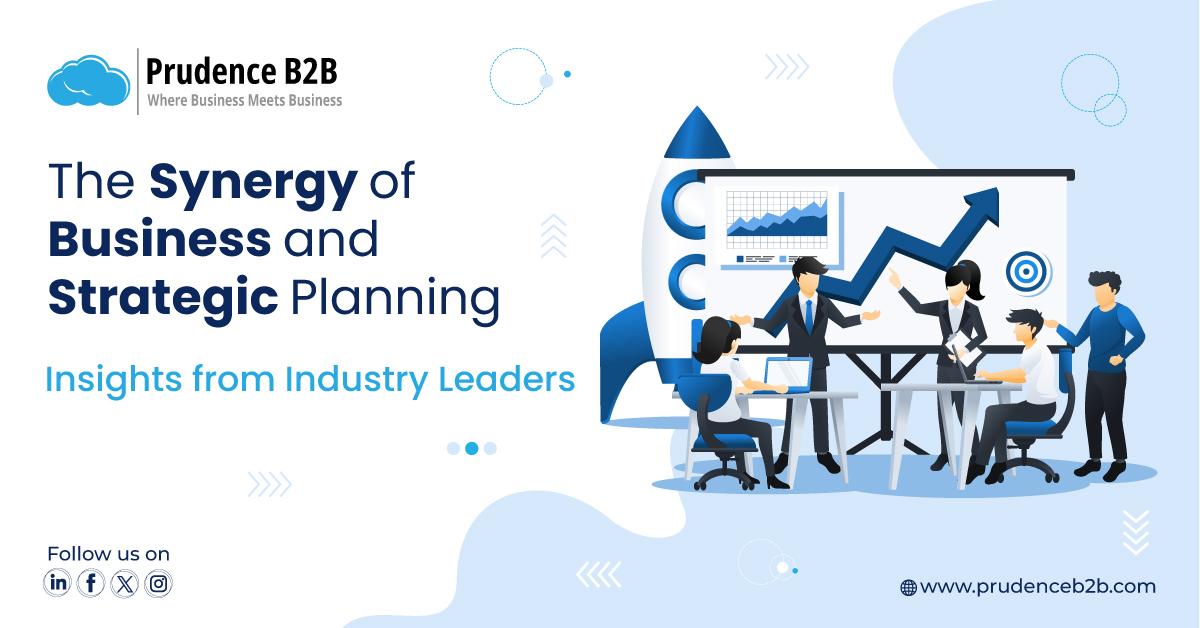Introduction
In today’s dynamic business environment, the intersection of strategic planning and operational execution is not merely beneficial—it’s essential for sustained success. This blog delves into deep insights shared by industry leaders on the critical role that strategic planning plays in molding robust business models and propelling corporate achievements.
The Essence of Strategic Planning
Strategic planning is the backbone of successful business management. It involves setting priorities, aligning resources, and ensuring that all members of an organization are working toward common goals. It’s particularly important in today’s complex, competitive landscape, where a well-crafted strategic plan provides a clear roadmap to success.
Industry leaders agree that strategic planning helps organizations understand their environment and adapt to changes more effectively. It ensures that businesses are not only reacting to external pressures but are proactively managing their growth and development. Through strategic planning, businesses can identify new opportunities, mitigate risks, and position themselves to take advantage of future trends.
The strategic planning process involves a clear articulation of what success looks like and establishes a method for measuring progress. It requires a thorough analysis of internal and external factors that can affect the organization’s outcomes. Leaders must ensure that the strategy is integrated into the daily actions of the company, aligning with its vision and operational capabilities.
The Strategic Management Process
Strategic management is an ongoing process that requires constant adjustments and realignments. Industry leaders emphasize that strategic management is not a static activity but a dynamic process that encompasses strategy formulation, implementation, and evaluation.
The strategic implementation stage is where most organizations face challenges. It’s one thing to have a plan, but another to execute it effectively. This stage requires detailed action plans, resource allocation, and sometimes, significant changes in the organizational structure or culture.
Strategic management also involves continuous evaluation of the implemented strategies. This includes monitoring outcomes, analyzing performance, and making necessary adjustments. Feedback mechanisms are crucial as they provide insights into the effectiveness of the strategies and offer opportunities for improvement.
Real-World Applications and Benefits
Industry leaders provide numerous examples of how strategic planning has transformed businesses. A tech startup, initially struggling with product development and market penetration, revamped its strategy to focus on a niche market. This shift, derived from strategic planning, allowed it to become a market leader within a few years.
Another example is a manufacturing firm that used strategic planning to overhaul its production process, integrating sustainable practices. This not only reduced costs but also enhanced its brand reputation, leading to increased sales.
“Crafting Success: Strategic Planning Consulting Services for Business Growth”
These cases illustrate that strategic planning is not just about surviving in the market but thriving by making informed, forward-thinking decisions. It allows businesses to turn potential challenges into opportunities and gain a competitive edge.
Insights from Industry Leaders
Industry leaders highlight the importance of embracing a flexible approach to strategic planning. They advise businesses to remain agile, allowing for adjustments to the strategy as market conditions change. This agility can be facilitated by fostering a culture of innovation and continuous learning within the organization.
Leaders also stress the importance of inclusivity in the planning process. By involving employees at all levels, companies can harness diverse ideas and insights, which enrich the strategic plan and enhance its effectiveness.
Extending Strategic Impact Through Continuous Learning
Continuous learning within an organization plays a pivotal role in enhancing strategic planning and implementation. Industry leaders advocate for establishing learning as a core component of the strategic planning process. This approach ensures that organizations remain agile and responsive to technological advancements and market shifts. For example, by regularly updating skills and knowledge bases, companies can better anticipate future trends and integrate innovative solutions into their operations. Furthermore, continuous learning fosters a culture of curiosity and resilience, empowering employees to contribute more effectively to strategic goals.
Integrating Technology in Strategic Planning
In today’s tech-driven world, integrating cutting-edge technologies into strategic planning is essential for maintaining competitive advantage. Technologies like data analytics, AI, and machine learning can provide valuable insights that inform strategic decisions and optimize business processes. Industry leaders highlight successful cases where companies have leveraged such technologies to predict consumer behavior, optimize supply chains, and personalize customer experiences. This technological integration helps businesses not only to streamline operations but also to create more value for their customers, thereby driving growth and sustainability.
Strategic Planning in Global Markets
Expanding into global markets requires adaptive and robust strategic planning. Industry leaders emphasize the need to understand diverse cultural, economic, and regulatory environments when formulating strategies for international growth. Strategies that incorporate local market insights and adapt to global dynamics are more likely to succeed. This section could explore strategies for entering new markets, scaling operations internationally, and navigating complex global supply chains, providing a blueprint for businesses aiming to expand their footprint worldwide.
Conclusion and Reinforced Call to Action
Strategic planning is more than a mere business tool; it’s a vital framework for innovation and global competitiveness. Embrace a holistic, inclusive, and technologically integrated approach to strategic planning to future-proof your business against an ever-evolving landscape. Start your strategic transformation today to harness the full potential of your enterprise.
As industry leaders continue to demonstrate, strategic planning is not just a theoretical exercise; it’s a practical tool for achieving tangible results and driving business performance. By integrating strategic planning into their operations, organizations can unlock new opportunities, mitigate risks, and create value for their stakeholders. In a world of constant change and uncertainty, strategic planning offers a roadmap for navigating complexity and achieving sustainable growth.
Expanding further on the role of strategic planning, it’s essential to recognize the iterative nature of the process. Strategic planning isn’t a one-time event but an ongoing journey that requires continuous assessment, adaptation, and refinement. As market conditions evolve and new opportunities emerge, organizations must be agile and responsive, adjusting their strategic plans accordingly to stay ahead of the curve.
Moreover, effective strategic planning isn’t just confined to the executive suite; it’s a collaborative effort that involves input from stakeholders at all levels of the organization. By engaging employees in the strategic planning process, organizations can tap into their collective knowledge, insights, and expertise, fostering a sense of ownership and commitment to the company’s goals and objectives.






